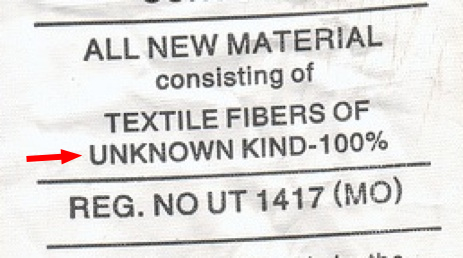Slate has posted a slideshow documenting ads since the 1970s, when corporations starting heavily targeting African-American consumers. Check it out.
history
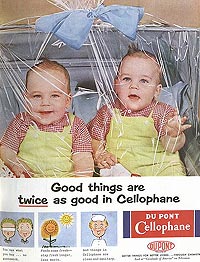
Top 10 Ironic Ads From History
Remember when you could buy barbiturates for the baby? Cover your house with asbestos? Or get heroin from the doctor? Okay, probably not, but thanks to the immortal beauty of advertising, you can take a trip back in time. Here’s our pick of some of the most ironic ads in American history.
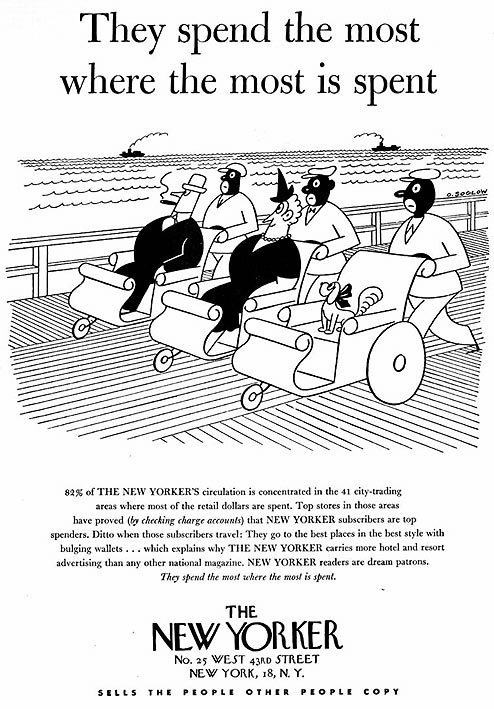
Old New Yorker Ad: Our Readers Are So Rich, They STILL Have Slaves
While perusing old advertising trade journals, I came across this ad for the New Yorker. You win if you can correctly answer what the message is here: New Yorker readers are under-exercised fat cats? That blackface was more common in hotels than we ever thought? That retail stores once secretly conspired with the New Yorker’s ad department to divulge customers’ sales histories?
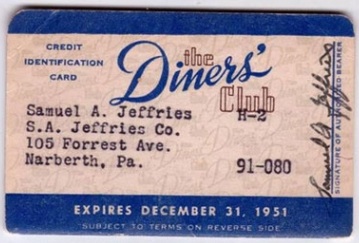
A Visual History Of Credit Cards From 1951-Today
Credit cards weren’t always the adorable little pocket debt machines that they are today. They weren’t even plastic until AmEx decided to class things up in 1959. Travel back to the good old days when credit cards were a “ticket for anyone to spend freely and decide when was best to pay it back” with this revealing photo set from Slate.

Robert Duvall Is Not Cool With Building A Walmart Near A Civil War Battlefield
Robert Duvall, a descendant of Robert E. Lee, is really just not cool with Walmart’s plans to build a Supercenter near the site of an important Civil War battle.

General Motors' Greatest Innovation? Not Cars, Credit
Sorry to disappoint all of you who think that the two-person Segway is the most innovative thing GM has produced in its long history — it seems that the company’s most important new idea was consumer credit. More specifically, convincing a nation of thrifty debt-averse tightwads that taking on debt was socially acceptable. Yes, it’s true. We weren’t always a bunch of debt junkies.

Animation: Target's Spread Across The U.S.
Last summer, we highlighted an ominous-looking animation that traced the spread of Walmart stores across the American landscape over the past 5 decades. Now the same guy behind that map has put together a new one, this time tracing Target’s growth.
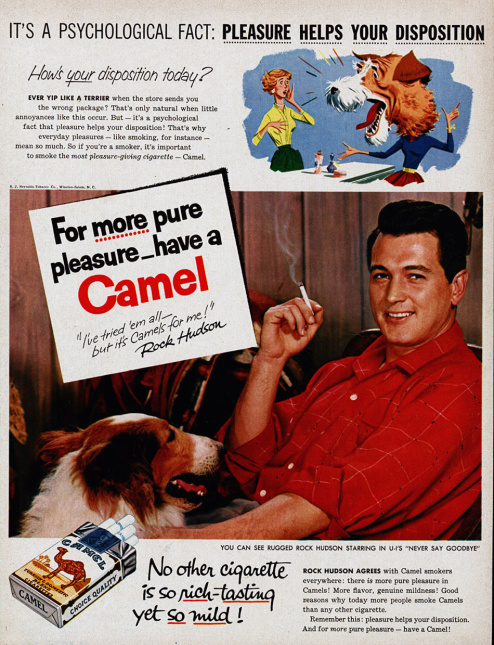
Old Cigarette Ads: Doctors, Nurses, And Rock Hudson Say It's Good For You
Man, cigarettes were awesome in the past, if these old ads collected by Stanford University are to be believed. They calmed your nerves so you’d stop humming nervously! They soothed your throat! They made you a movie star and helped you capture animals on your big game hunt! We don’t know what tobacco was made of before the mid-80s, but no wonder everyone smoked.
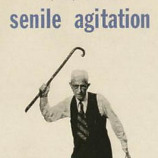
These Old Ads Remind You To Drug Children And The Elderly
Sometimes gentleness is required of your toddler. Sometimes ill-tempered old folks get too agitated and threaten you with canes. That’s why sometimes the best solution is a good old fashioned thorazine pill, or a barbiturate elixir. Weirdomatic has a collection of bizarre ads like these from the past. Our favorite, aside from the drug ads, is the one showing Olympian speed skater Jack Shea taking a break from his skating to enjoy the rejuvenating effects of a Camel cigarette. So that’s how Phelps did it.
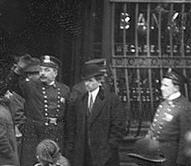
What Does A Bank Run Look Like In 2008? A Lot Like 1912.
The FDIC was created in 1933 by the Glass-Steagall Act, and provides $100,000 of deposit insurance to checking and savings deposits. “Bank panics” used to be fairly common, and the FDIC was intended to instill confidence in the banking system after the Great Depression. The most recent big failure, that of California bank IndyMac, will cost the FDIC between $4 and $8 billion, and they estimate that about $1 billion of IndyMac’s deposits are “potentially uninsured,” meaning that the depositors had more than $100,000 on deposit. So what does a bank run look like these days?

Senate Committee Votes To Rollback FCC's Media Consolidation Plan
Poor Kevin Martin. The Senate is well on its way towards killing his proposal to let newspapers get all freaky and consolidate with television and radio stations. Martin shouldn’t be too surprised: this is exactly what happened the last time a FCC Chairman tried to ram media consolidation down our throats.

AT&T Won't Sell Man GoPhone Because It Can't Verify His Credit History
Nathan’s been having trouble this week buying a prepaid GoPhone from AT&T Mobility’s website. He finally found out the reason: they couldn’t verify his credit history. This is confusing because it’s a prepaid GoPhone and because his credit history is superb. “Cheryl refused to transfer me.

../../../..//2008/01/25/the-boston-globe-profiles-the/
The Boston Globe profiles the last remaining shoe and boot maker in New England, Alden Shoes. The company’s classic footwear has been worn by the likes of John F. Kennedy, Richard M. Nixon, Dwight D. Eisenhower, Indiana Jones… and the Massachusetts state troopers. The shoes will set you back about $350-$500 a pair, but they seem like awfully nice people. “Our shoes don’t wear out,” says Robert Clark, Alden’s vice president. [Boston Globe]

January 1st, 1808: Slave Importation Banned In US
Considering we spend a good deal of time focusing on legislation that protects consumers and/or (usually or) businesses, we thought it appropriate to point out one of the big historical moments of trade law, not to mention human rights—tomorrow marks the “200th anniversary of Jan. 1, 1808, when the importation of slaves into the United States was prohibited.” Hey, it didn’t stop the madness, but at least it was a start.

Site Of Most Infamous Mob Murder In NY History Is Now A Starbucks
The site of the most infamous mob murder in New York City history is now a Starbucks, but does anyone care? Nah. We certainly don’t care… but it’s a chance to learn about a mob murder:
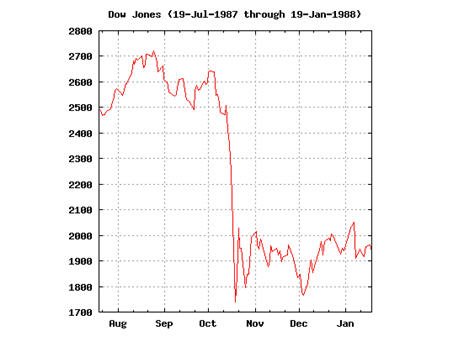
20th Anniversary Of "Black Monday" Crash Of '87
Today marks the 20th anniversary of the “Black Monday” crash of ’87, in which the stock market lost 22.6% in one day, the second largest one day percentage drop in history and one we’re not likely to see again any time soon.
The Bikini's Tumultuous History
Bikinis were not always fit for toddlers; though they were accepted by the ancient Romans, bikinis made waves when they first appeared on the modern market, according to a slideshow essay from Slate:
- “When the bikini first arrived, its revealing cut scandalized even the French fashion models who were supposed to wear it; they refused, and the original designer had to enlist a stripper instead.”



